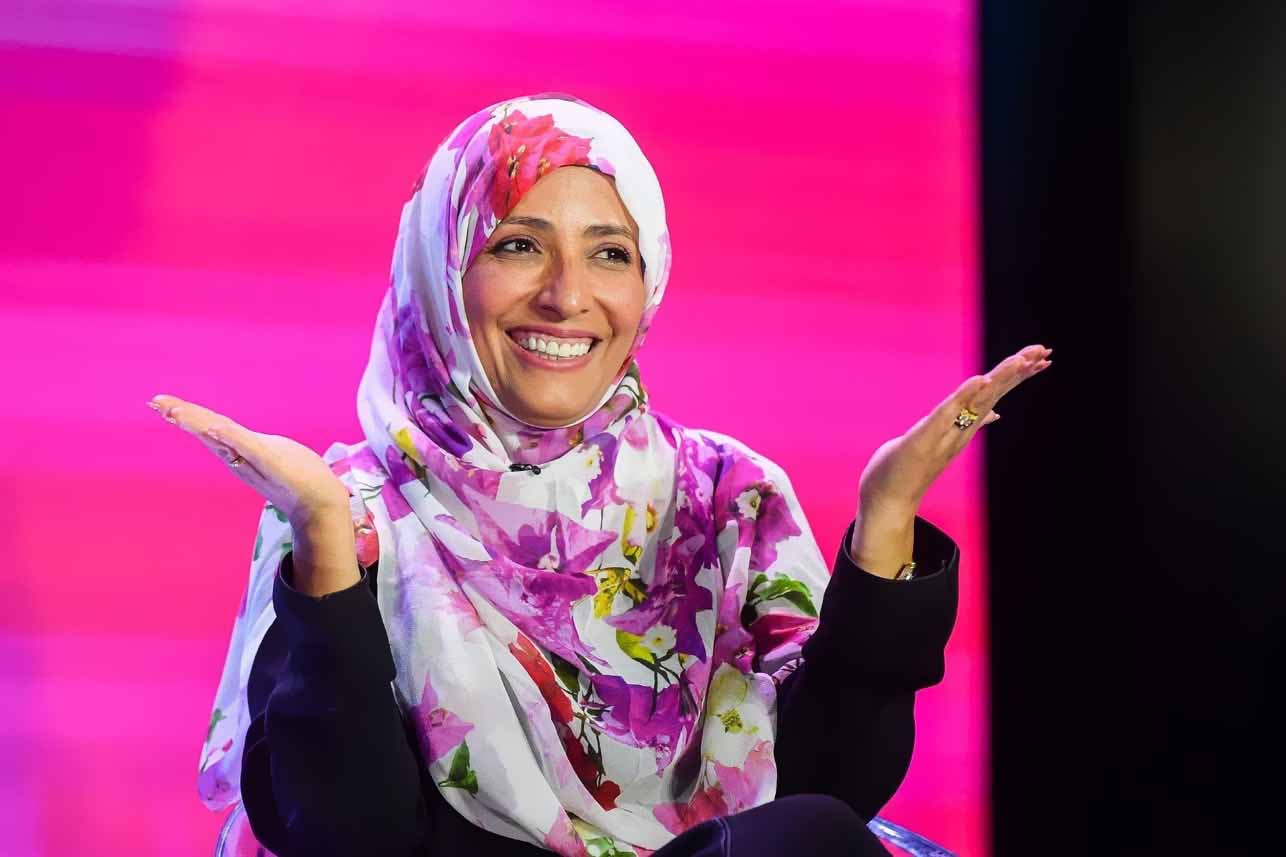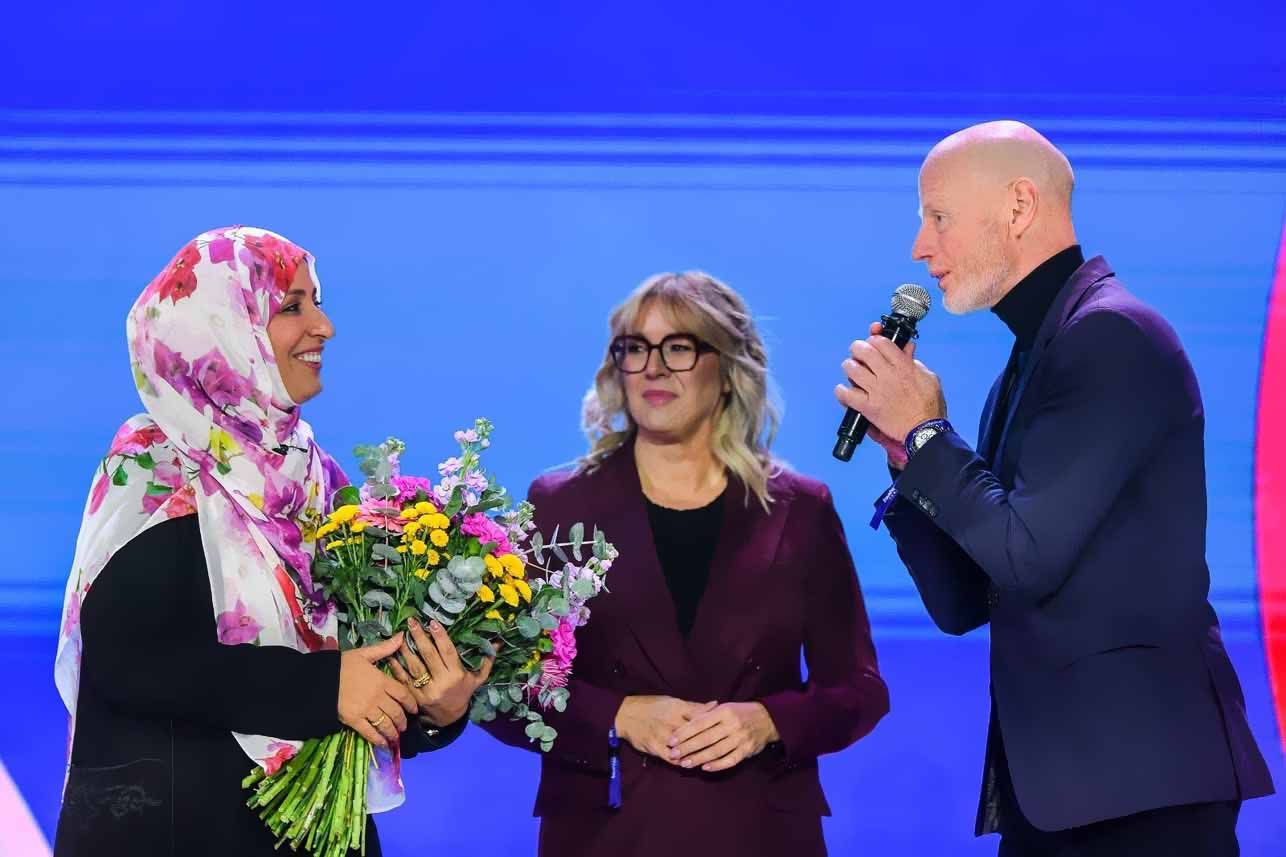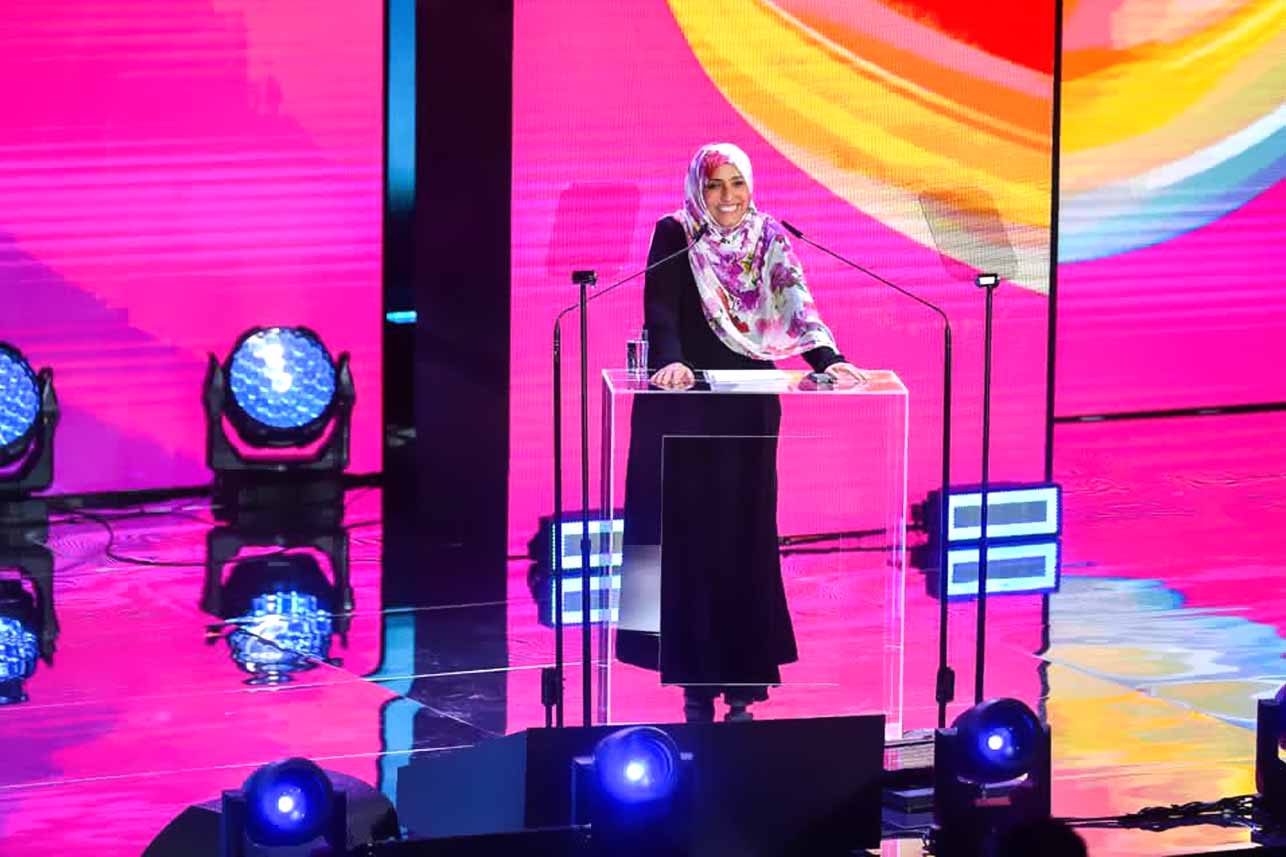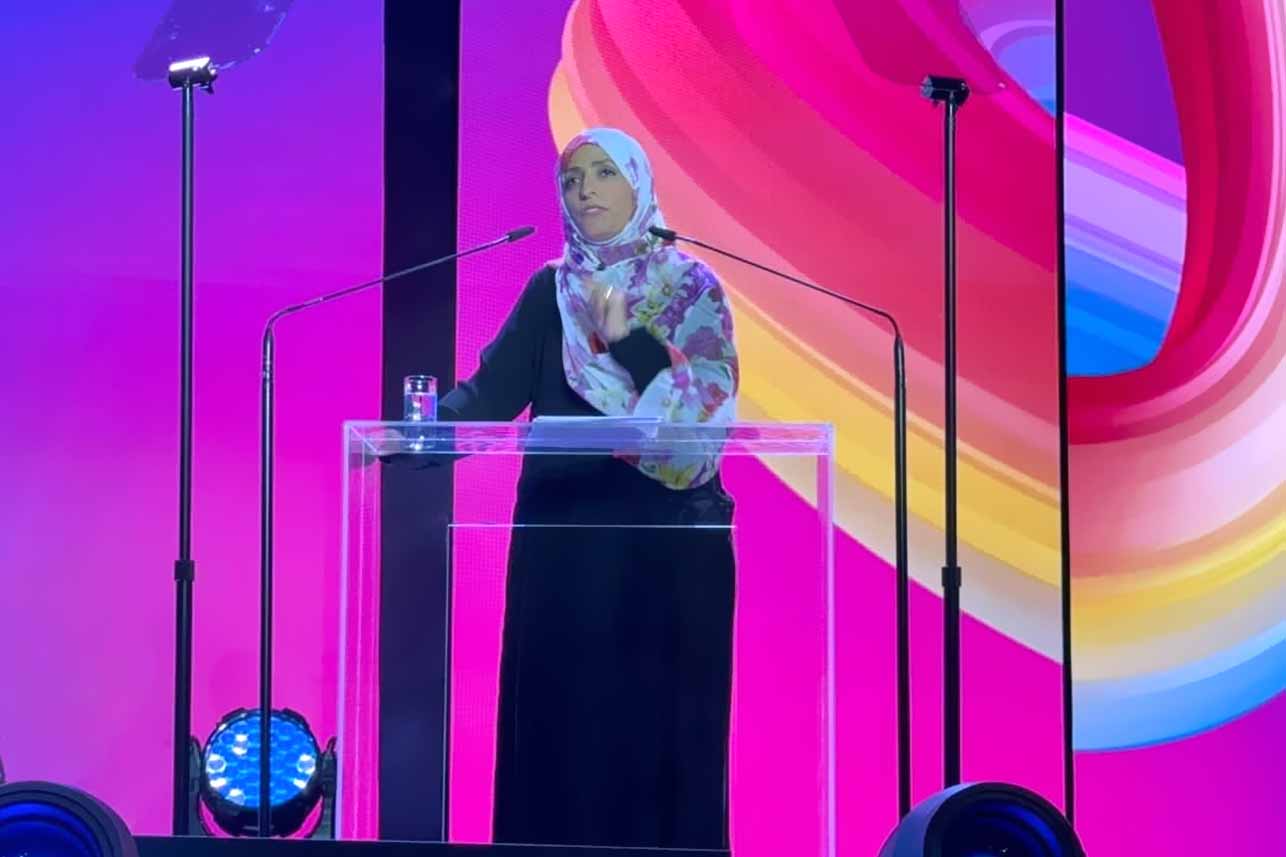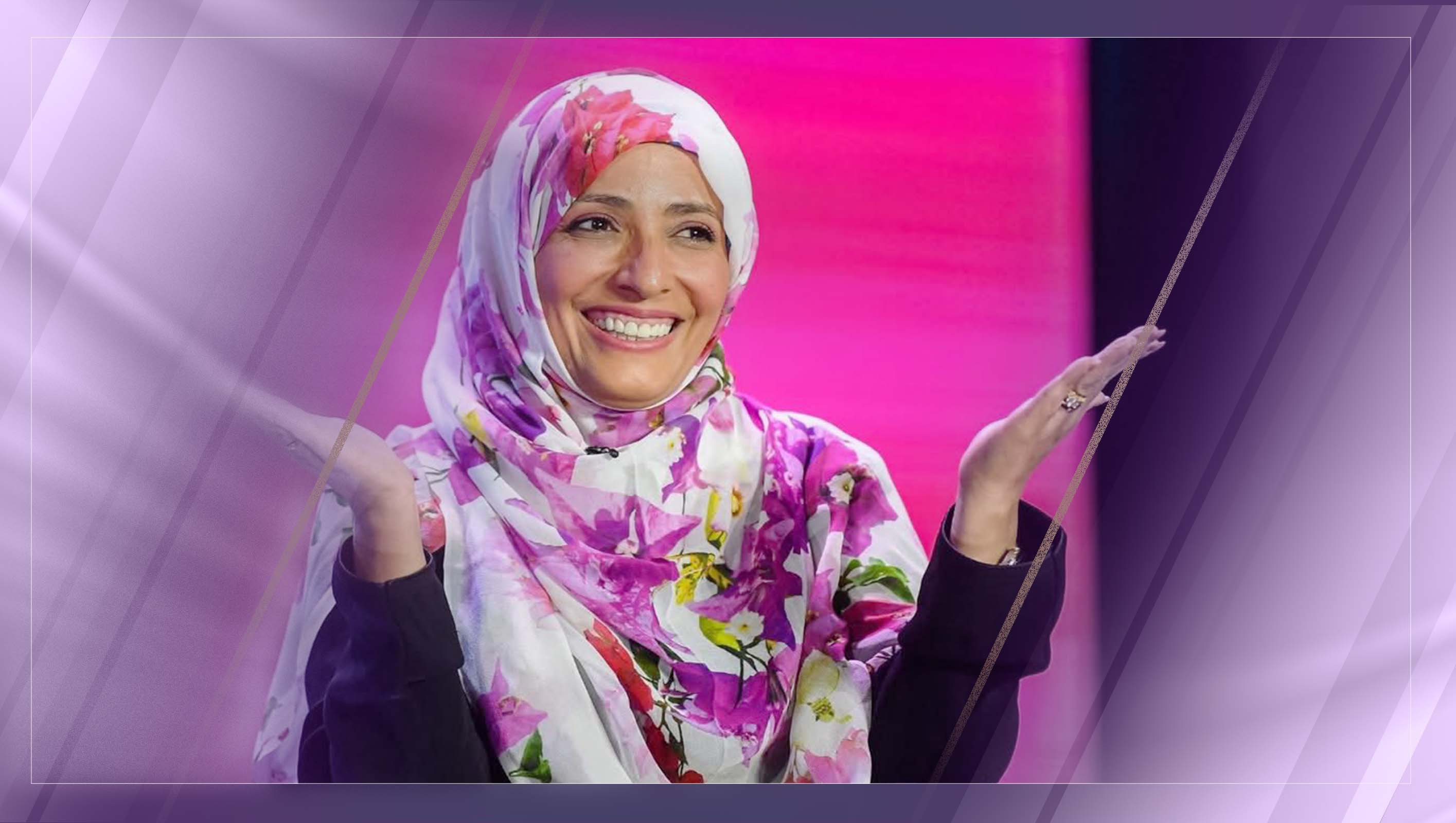Nobel Peace Prize laureate Tawakkol Karman underscored that gender equality is not the pursuit of sameness between men and women but the guarantee of equal opportunities, rights, and dignity for all individuals, free from discrimination, marginalization, or violence.
She stressed that equality is far more than a political slogan; it is the bedrock of human dignity, democratic governance, and social stability. Defending it, she said, is a global responsibility and an essential condition for a just and peaceful future.
Karman delivered her remarks during a keynote address at the EqualVoice Summit held at the POLIN Museum in Warsaw, where she urged governments and institutions to treat gender equality as a central component of democratic life and effective governance. Her speech was followed by a forty-five-minute exchange with participants, during which she discussed how equality can break cycles of poverty, counter authoritarian tendencies, and unlock the creative and economic potential of half the world’s population.
She outlined the persistent and varied challenges facing women globally. In Western societies, she noted, women continue to experience domestic violence, wage gaps, workplace harassment, and systemic barriers to leadership despite the presence of strong legal and institutional protections. Migrant women, Muslim women, and women of color face compounded discrimination rooted in both gender and identity. Turning to the Middle East, she described entrenched patterns of exclusion under authoritarian and occupation regimes, where advancing gender equality has never been a political priority and women have long been denied rights, representation, and meaningful participation in public life.
Karman drew a direct link between gender equality and economic development, arguing that no country can progress while sidelining significant portions of its population. Citing global economic assessments, she emphasized that empowering women consistently increases national GDP and improves social outcomes. “Equality is not just a women’s issue; it is a national and global advantage,” she said, warning that the world economy loses trillions when women are excluded. Economies, she argued, become more resilient and innovative when women have full and equal access to opportunity. “When women rise, whole nations rise.”
She also highlighted the indispensable role of women in politics and peacebuilding. “A democracy without women is a democracy built on a lie,” she asserted. “A peace table without women is not a peace table at all — it is a table preparing for the next war.” Drawing on her experience in Yemen’s peaceful uprising, she urged women to claim equal presence and leadership across all fields. “We do not accept one chair, or two chairs — we want half the chairs, because half of society belongs at the table.”
Karman concluded with a warning that rising populism, discrimination, hate speech, and climate injustice threaten the values upon which Europe was built. “Europe was founded on peace, freedom, and equality,” she said. “There is no dignity without equality. No democracy without equality. And no future for Europe without equality.”
Presented below is the full address:
First, I would like to thank you for this invitation.
Gender equality does not mean turning men and women into identical copies of one another.
It means giving everyone the same opportunities, the same rights, the same dignity, the same protection, and the same space to fulfill their full potential—without discrimination, marginalization, or violence.
It means that half of society is not excluded from public life because of inherited beliefs or political and economic interests.
When we speak about gender equality, we must speak with honesty.
Because women — across the world — are still fighting a long and exhausting battle against different forms of injustice. The faces may change, the tools may differ, but the struggle is one: the struggle of a human being seeking her full right to life, dignity, and equal opportunity.
In the West, even with strong laws and institutions, women still face alarming levels of domestic violence, a persistent gender pay gap, a harsh glass ceiling that blocks them from positions of power, and widespread harassment in workplaces.
And migrant, Muslim, and women of color often suffer double discrimination — based on gender, race, and identity.
In the Middle East, the challenges are even more complex and deeply rooted.
Women there face entrenched systems of Violence and discrimination as a result of authoritarian and occupation regimes.
Gender equality has never been a priority for ruling authorities.
Historically, women received fewer rights and suffered more violations.
Seventy-seven years ago, the Universal Declaration of Human Rights marked the first global attempt to change this reality, affirming that “all human beings are born free and equal in dignity and rights,” and that these rights apply “without distinction of any kind, including sex.”
This did not deliver the full change the world hoped for, but it paved the way for meaningful progress in many societies—progress that helped them advance faster and more steadily than others.
Dear Friends.
As the world undergoes rapid transformation, the meaning of power has changed.
Power is no longer measured by natural resources or deadly weapons.
Real power lies in human capital—when every individual can contribute without marginalization.
gender equality becomes a foundational pillar for capable, prosperous societies—and for a more balanced global order.
nations that adopted clear equality policies—even minimally—integrated women into parliaments, governments, and civil society.
This made their societies more balanced, more resilient, and more 0eaceful and humane.
Equality is essential for sustainable development because no society can progress while excluding parts of its population. When everyone has equal rights and opportunities, economies grow, communities stabilize, and development becomes fair, inclusive, and lasting. In simple terms: sustainability is impossible without equality.
International reports confirm that empowering women has increased GDP and improved living standards in many countries.
This proves a simple truth:
equality is not just a women’s issue; it is a national and global advantage.
How do we turn equality into a force that changes the world?
Equality becomes transformative when it breaks cycles of poverty, ends violence, challenges authoritarianism, and unleashes the full creative and economic power of half the population.
We turn equality into a world-changing force by moving it from theory to practice—by transforming it from laws on paper into realities in people’s lives.
when women shift from potential victims to central leaders in politics, the economy, technology, media, and law, transforming the very nature of decision-making by bringing peace, justice, education, and community to the heart of public policy.
When we empower women economically, we protect the world from its greatest economic loss. The global economy loses trillions when women are excluded. Empowering them means stronger economies, greater innovation, and more stable, resilient societies.
True equality becomes powerful when women and men have equal access to education, resources, and decision-making; when workplaces value talent over gender;
when political systems endure women’s leadership;
A democracy without women
is a democracy built on a lie.
and when societies dismantle the cultural barriers that limit women’s potential.
We turn equality into a force that truly changes the world when women have a real role in peace talks and negotiations.
There is no peace without justice.
And no justice while half of society is silent.
A peace table without women is not a peace table at all — it is a table preparing for the next war.
Equality becomes transformative when women of the Global South appear in the media not only when crying or bleeding, not as victims blamed on culture or religion — but as the heroes they truly are.
We would see the women who:
• stand up to dictatorships,
• lead revolutions,
• fight corruption,
• build economies,
• protect democracy,
• and invent the technologies of the future.
We nee to dismantle inequality in Media, media must do more than “mention” women.It must trust women, amplify them, and give them leadership in the narrative — not just a brief appearance in the story.
Simply put: when women rise, whole nations rise.
Equality changes the world when we treat it not as a women’s issue, but as the foundation of justice, prosperity, and peace for all.
to Every women:
equality needs strong women who first believe on her self, who refuse to stay in the shadow, need strong women prove her ability to role to heal to build to lead and to create change:
and this is what women around the world must do: women must be visible — present, outspoken, leading, shaping decisions, occupying every space that was once denied to them. Visibility is not a privilege; it is a right, and it is the first step toward real power
When women are visible, heard, trusted, and fairly represented, societies become stronger, more just, and more free.
I have seen this truth in the streets of Yemen, in the squares of peaceful revolution,
on the frontlines of media battles,
and in the dark rooms where dictatorships tried to silence women and their free voices
From all of this, I learned one undeniable fact:
Visibility is the first chapter of freedom;
silence is the first chapter of oppression.
Gender Equality is not some thing we ask from authorities it is something we shoule take:
And to women everywhere, I say this:
You cannot achieve your full rights if your society is deprived of freedom, dignity, democracy, and the rule of law.
In every war and conflict, women and children endure the harshest violations — too often with complete impunity for the perpetrators.
This must never be accepted.
Let us unite to confront all those criminals around the world.
Those who commit starvation, rape, or any war crimes must be held accountable — without exception.
Let us stand together against authoritarianism and fight injustice wherever it appears.
Let us refuse to be treated as decoration.
Let us refuse symbolic seats.
We do not accept one chair, or two chairs — we want half the chairs, because half of society belongs at the table.
Be brave.
Speak the truth.
And never apologize for demanding your full rights.
Finally dear Friends:
Here is a polished, powerful version:
Finally, dear friends,
Let us end by speaking about equality in its broadest sense.
Equality is not a slogan; it is the foundation of human dignity, democracy, and peace. Today, Europe must urgently recommit to equality in all its dimensions — political, economic, social, gender, and environmental.
Rising populism, discrimination, hate speech, and inequality now threaten the very soul of the European project.
A democracy cannot survive when voices are unequal;
an economy cannot remain stable when wealth is unjustly concentrated; and a society cannot thrive while minorities, migrants, and women face exclusion, marginalization, and violence.
Climate injustice only deepens these divides.
Europe was built on the values of peace, freedom, and equality, and defending these values today is its greatest responsibility.
There is no dignity without equality.
No democracy without equality.
And no future for Europe without equality.
Thank you.
To watch full speech click here
